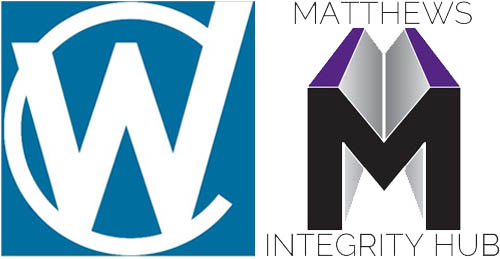Job status and MONEY
Congratulations if you got through our MoneyBIT article Making Money in the asset integrity industry. Apologies for filling your mind with random thoughts about safety nets, purple patches and the fleetness-of-foot of the money-dragon. Seeping through these somewhere however, will hopefully be the message that the amount of money you will make from the asset integrity industry is pretty much dependent on the form of employment status that you choose to use in providing your services to your employers.
In this age of the contract/freelance work gig economy there is so much opportunity for you to influence your own job status. The integrity industry today is nothing like it was in the 1980s, 90s or the decade following and these changes seem likely to be permanent for the foreseeable future.
Permanent ‘staff’ employment status
Let’s rename this ‘staff’ status, or ‘PAYE’ status; even employers have stopped calling positions ‘permanent’ these days.
Just as prison sometimes provides a refuge for the hopeless or dispossessed, then so staff status provides a refuge for those workers who prefer its surroundings to the alternatives available. If this is you, then staff employment feels like the lowest-risk option and you may like the feeling that you are part of some larger group that will make decisions for you. There’s the comfort of a partially-visible salary structure with the whole deal floating in a gentle sea of risk averse-ness that enables you to sleep at night.
Sometimes, across the desk, your colleague sees the whole idea differently. To them it’s the devil’s incarnation of the 50-40-30 scam; you work 50 hours a week for 40 years to benefit someone else and retire on a pension of 30% of what wasn’t quite enough anyway. Feel free to flex the percentages, depending on where you work.
Whatever the truth, lots of people feel comfortable with staff status, work hard to keep it. It’s generally the lowest-paid option and employees tacitly accept that it’ll take a very long time to build up any kind of financial safety net. Let’s wish them well.
‘Contract staff’ status
This is more like a staff position in disguise than anything else. Contractors normally work for a single employer but are paid as an independent contractor, so lack permanent employee benefits. They may sit alongside staff employees doing similar jobs, or more commonly be deployed on site or offshore. In the eyes of the tax authorities this type of working arrangement doesn’t always count as being truly ‘self-employed’ so they keep a close eye on this working method with the objective of equalising the tax status with those who are ‘staff’ employed.
Does it pay more? It used to pay a much greater differential over staff positions than it does now. Unless it is combined with tax advantages of being resident overseas then the difference is now marginal; perhaps +10-15% or so, depending on who you work for. Against this you have to balance your loss of staff employee benefits and your (slightly) increased disposability, if things get tough. Some employers prefer to pay a bit extra to contract employees be able to get rid of them with no problems if they lose a client contract or the business changes in some way.
‘Composite’ contracting
‘Composite contracting’ comes under the status of being truly self-employed. You are available to do contract work for multiple employer ‘clients’; either in fairly quick succession or at the same time (the taxman likes this even better).Legally you are in business for yourself but in practice composite contractors rely on their contacts to pick up contract work, rather than advertising themselves as an independent business. They don’t employ other people either.
Is this better paid? Yes this is the first step towards turning whatever skills you have in the integrity industry into much more hard cash than you could earn as a ‘permanent’ staff or contract employee. With it come the following ‘risks’ however:
- You need to develop a specific technical profile for yourself, with specific skills to sell
- How you perform will completely overshadow what qualifications or certificates you have
- People will assess you on what you do for them, not what you said you did for someone else
- You need to keep the contracts coming, one after another, not take big rests in-between
- You might need insurance for liabilities etc
If you can get all these points right then it’s not unreasonable to expect to double the money you could make from staff employment.
Looking at the maths: 250 days paid work at £500 per day gives you £135,000 per year, about three times a good average salary in the integrity industry. £600 per day makes you £150,000.You could make more, but the realities of enforced downtime between clients/contracts will generally put a cap on your income ceiling. If you can sort that one out, then your income ceiling will rise even higher.
Running your own business
If you really want to chase the money-dragon, this is the only place to be. The financial rewards can double or treble those obtainable from single-person composite contracting, or you might make nothing, at the same time losing whatever you had accumulated beforehand. As there are a finite number of hours in the day that you can actually do fee-earning work, much of the increase in income comes in the profit available from employing others to do your work for you. This puts you in the position of being employer as well as employee, with the challenges that affect both. It is no place for the weak at heart, challenges come your way weekly, daily and hourly, in the form of decisions that you have to take. From dealing with the bank, the taxman, your clients, your company’s input, its output and all the technical issues of the integrity industry that affect you, you have to deal with them all.
When running your own business, it is vision that carries the greatest power. No-one can give this to you. If you don’t have it, then you will probably be better off as a contractor. If you think you do fit the bill there are hundreds of books on how to run your own business; these apply as much to the integrity business as any other. Here are a few pieces of specific advice relating to the asset integrity industry;
- Think small, compact and technical. In the battle between technical superpowers and guerrilla forces, superpowers don’t win.
- Stay clear of any business model that is capital-intensive or needs investment in expensive equipment. It will be obsolete before you know it.
- If it’s got a roof, just rent it. Don’t buy it.
Finally; some things never change
This is true enough; one of the main ones being the link between reward and risk. This just says that if you actively choose your job status to seek greater reward (more money) then there will always be an increased risk that accompanies it. The greater the reward you seek, the larger this risk will be. Unfortunately, this link is unbreakable. You can pretend it doesn’t affect your situation, or ignore it in the hope it goes away, but in reality you have more chance of influencing the earth to spin in the opposite direction. Nice idea but it just won’t listen to you. More reward equals more risk; every time. Makes life interesting.
This article is the work of The Innovator. We thank her for her contribution to Matthews integrity Hub: HEAD OFFICE.
Matthews Integrity Hub: HEAD OFFICE is OPEN EVERY DAY….0730 – 2200 Monday – Sunday…That’s correct, all week, every week, including holidays
 If we happen to miss your call, leave a message and we will call you back just as soon as we pick it up. Sorry, there’s no automated messages, call queueing, voice recognition tools or canned music. Try it and see.
If we happen to miss your call, leave a message and we will call you back just as soon as we pick it up. Sorry, there’s no automated messages, call queueing, voice recognition tools or canned music. Try it and see.
CONTACT US
Tel: 07746 771592 help@matthewsintegrity.co.uk







